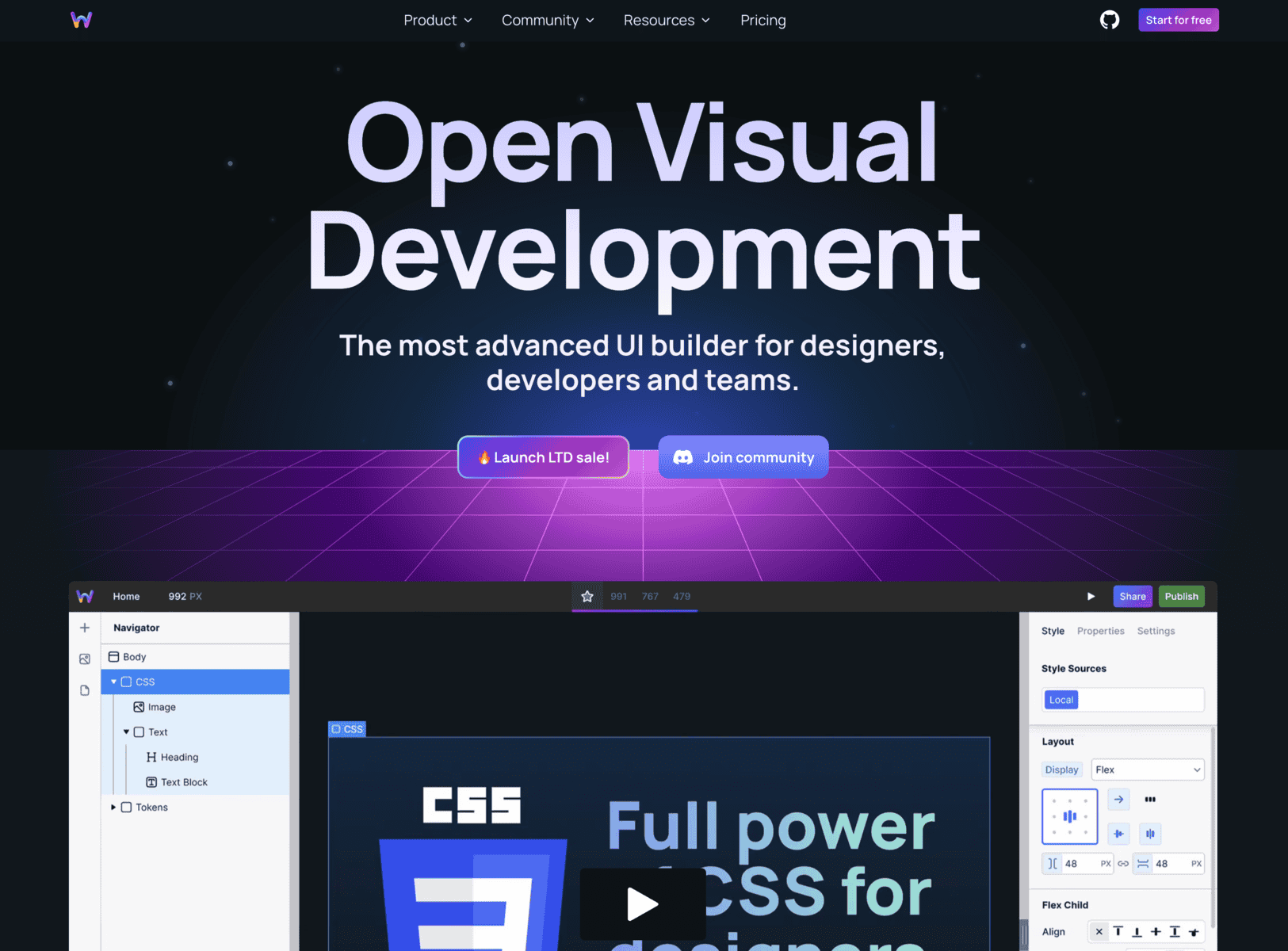Do you love websites or mobile apps? Are you a website person or a mobile app person?
There are pros and cons to both types of sites and apps. In this post, we’ll compare the two and see how each type of site/app works. We’ll also look at the differences between the two and why you should choose one over the other.
Websites and mobile apps are very similar in many ways, but they do have some key differences. Let’s explore these differences and learn how to decide which type of site/app will work best for your business.
What Is a Website and What Is an App?

A website is an online location that can be accessed through a web browser on any device with internet access. Websites allow users to view content such as text, images, videos, and more. Websites can also contain links to other locations (called hyperlinks).
An app is a program designed to run on a smartphone or tablet computer. The most common type of app is a mobile app. You can use an app to perform tasks like taking pictures, sending messages, playing games, and listening to music.
Mobile apps are often easier to create than websites because there are fewer steps involved. However, creating a mobile app requires specialized knowledge and skills. If you want to make sure your mobile app is successful, it’s important to hire someone who has experience developing them.
What are the pros of a website?
The pros of a website include:
- Easy to update
When you’re running a website, you don’t need to worry about updating code every time you add new content. Instead, you just upload files to your server and refresh the page. This makes it easy to keep your website up to date. - Easier to manage
Managing a website is much simpler than managing a mobile app. With a website, all you need to do is log into your hosting account and make changes to your website. There’s no need to install anything on your phone or tablet. - Can be shared easily
Websites are great for sharing information with others. For example, if you have a blog, you can share posts by emailing them directly from your website. - Allows for more customization
Websites offer more flexibility when it comes to customizing your site. You can change colors, fonts, and even add special effects. - Can be viewed on multiple devices
Websites are compatible with almost any device. That means you can view your website from your desktop computer, laptop, tablet, or smartwatch.
What are the cons of a website?
There are many benefits of using a website, but there are also several drawbacks. If you don’t know much about websites, here are some things you may not realize until after you invest in one.
- Can Be Expensive
Websites can cost anywhere between $500-$10,000 depending on the features you need. Some sites offer basic templates that include everything you need to get started, while others come with advanced features such as ecommerce capabilities. - May Get Hacked
Hacking is when an unauthorized person gains access to your computer system and uses it to steal information or damage files. Hackers often target websites because they believe they contain valuable data. - Can Be Slow
A website takes time to load. If you don’t have a fast connection, you may find yourself waiting forever for pages to load. This means you won’t be able to interact with your site until after the page has loaded. This can cause problems for your visitors. For example, if you ask them to sign up for a newsletter, they’ll have to wait until the entire page loads before signing up.
What are the pros of a mobile app over a website?

Mobile apps have their own set of advantages. Here’s what makes them better than websites.
- Better User Experience
Apps allow users to access information quickly and easily. This makes them ideal for those who don’t have much time to spend online. Apps provide a faster user experience than websites, allowing users to navigate between pages without waiting for each page to load. - Customization Options
Unlike websites, mobile apps give you complete control over the layout and functionality of your app. You can customize the app according to your preferences. - Convenience
Apps are convenient because they allow users to perform tasks without leaving their homes. For example, you can order food online, pay bills, book flights, and manage your finances right from your phone. You no longer have to leave your house to complete these actions. You no longer have to leave your house to complete these actions. - Improved Security
Security is another advantage of using mobile apps. Since mobile apps are downloaded directly onto a phone, they cannot be hacked or infected. In addition, since mobile apps are installed directly onto a phone, malware cannot infect the device. - More Functionality
A mobile app offers more functionality than a website. For example, a mobile app can provide features such as push notifications, location services, social media integration, and more. These additional features allow users to interact with each other and share information. On the other hand, websites can only provide basic functions such as navigation and contact information.
What are the cons of a mobile app over websites?
While there are some advantages to creating a mobile app, there are also disadvantages. Here’s why mobile apps aren’t always better than websites.
- Can Be Harder to Update
When you update a website, you simply upload a newer version of the site. With a mobile app, you have to submit a completely new version of the app. This can be difficult and expensive, depending on the size of your team. If you plan to release updates frequently, you may find yourself spending too much money updating your app. - Higher Development Time & Cost
Developing a mobile app requires significant resources. You’ll need to hire developers to write code and test your app. It takes time to find and train those developers. Plus, you’ll need to pay for software licenses, hosting fees, and maintenance costs. All of this adds up quickly. - Needs a Smartphone
The biggest disadvantage of creating a mobile app is that it needs a smartphone. Most people use smartphones to browse the internet. Therefore, most people will not download an app unless they already own a smartphone. If you want to create a successful app, make sure your target audience owns a smartphone.
Which should you choose: websites or mobile apps?

There are two main types of online business models: websites and apps. Each type offers different benefits and drawbacks. Here’s a quick breakdown of each option.
Website: Websites are typically used for eCommerce businesses, blogs, and other web-based services. While websites offer flexibility, they require technical skills to build and maintain. Plus, they aren’t always ideal for every kind of business.
Mobile App: Apps are usually built for specific purposes, such as games, shopping, messaging, etc. These apps are easy to create and manage, but they lack the flexibility of websites.
So, which should you choose? Well, it really depends on what kind of business you run. If you’re just starting out, then building a website might be easier. But if you’re planning to grow your business over time, then creating an app could be a better choice.
Regardless of whether you decide to build a website or an app, here are some tips to consider:
- Make sure your website or app is responsive.
Responsive design allows your website or app to adapt to any screen size, including phones, tablets, laptops, and desktops. When designing your website or app, make sure that it fits within the width of whatever device it’s viewed on. - Optimize for speed.
Speed matters. Users expect fast load speeds, especially on mobile devices. So, make sure that your site loads quickly. There are several ways to optimize your site for speed, including reducing image sizes, optimizing JavaScript files, and compressing HTML code. - Create a strong brand identity.
Branding is everything. Whether you’re selling products or offering services, having a recognizable logo and color scheme helps customers remember your business. Also, make sure that your branding elements are consistent across all channels, from your website to social media accounts. - Add features that engage users.
People love to interact with brands that provide value. For example, if you sell clothing, add a feature where users can share photos of themselves wearing your clothes. Or, if you’re running a service business, let users ask questions directly through your app. - Include customer reviews.
Reviews are powerful. Customers trust recommendations from friends and family more than anything else. So, make sure to include ratings and reviews on your website or app. - Offer incentives.
Offering discounts, free shipping, or special promotions can entice potential customers to buy from you. It’s a win-win situation—you get extra sales while giving back to loyal customers. - Provide support.
Even though most customers prefer to deal with companies via phone calls or emails, many still appreciate being able to contact someone face-to-face. That’s why it’s important to provide 24/7 customer support. - Keep track of user data.
Analytics software lets you monitor how users behave on your website or app, allowing you to tweak your strategy accordingly. For example, if a certain section of your website gets lots of visitors, you can focus on improving that area. - Build relationships.
Social media platforms allow you to connect with existing and prospective clients. And, since word-of-mouth referrals are still king, it’s essential to establish yourself as a trustworthy company. - Don’t forget about offline marketing.
In addition to traditional advertising methods like print ads and billboards, there are plenty of digital options available today. From QR codes to Facebook Ads, there are tons of ways to reach consumers without leaving their homes.
Conclusion
As you can see, there are numerous benefits to using both websites and apps. However, not every type of business will be successful in every channel. If you want to find out which one works best for your business, try testing different strategies.
If you need assistance to understand what could work best for you, please don’t hesitate to contact us. We would be happy to help!


